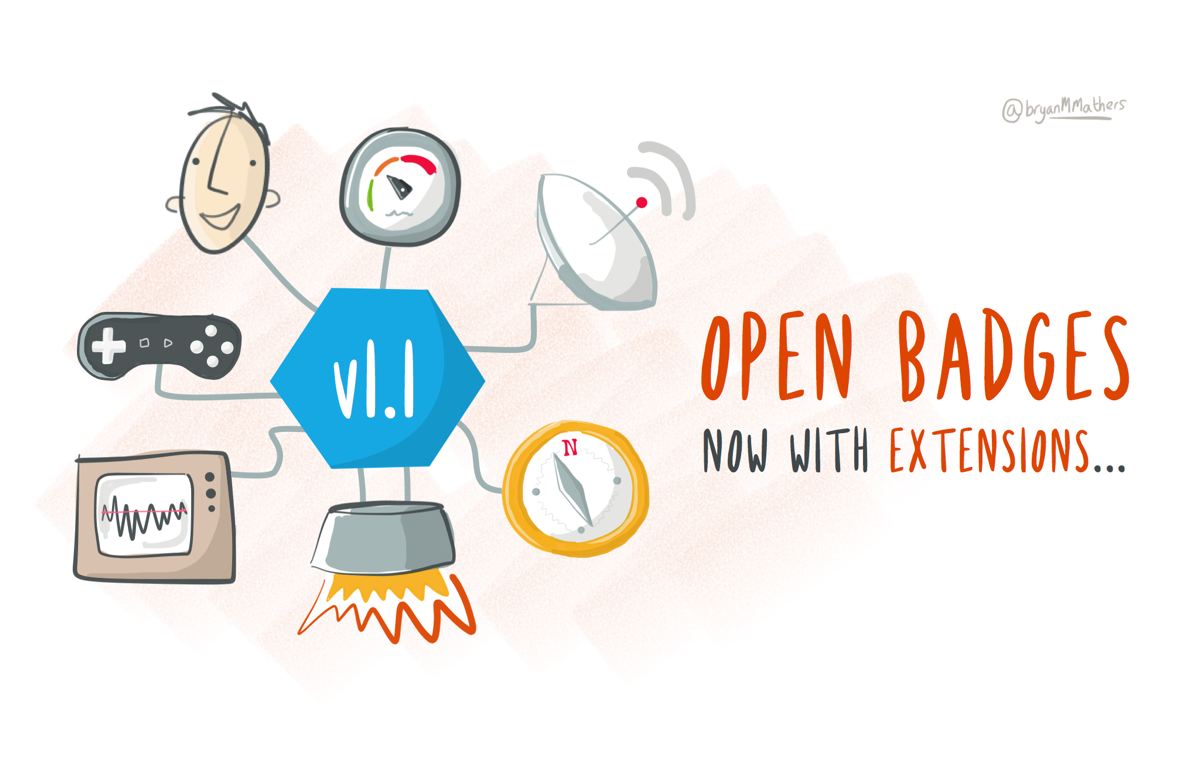Act NOW to prevent the hijacking of the Open Badges standard by an IMS faction!

TL;DR: add your comments to this GitHub comments thread to express your opposition to the Open Badges standard being merged with with ‘Comprehensive Learner Record’ (CLR). An overview of the better path forward can be found in this overview slide deck.
In March 2019, two years after Mozilla handed the stewardship of Open Badges to IMS Global Learning Consortium, I called for a ‘community renaissance’ free of IMS involvement.
I did not think then, nor do I think now, that IMS are a fit and proper steward for the Open Badges standard. Developing standards behind closed doors is antithetical that everything that Mozilla stood for when I was on the original Open Badges team. It leads to power grabs by small groups with interests unaligned to the wider community, and that’s exactly what’s happening now.
Over the past few years, Kerri Lemoie, Nate Otto, and others have attempted to steer a true course for the Open Badges standard towards the wider W3C Verifiable Credentials standard. (The W3C is the organisation responsible for developing standards for the web.) They have done this openly and transparently.
Behind closed doors, a faction of IMS members, perhaps wishing to hitch their bandwagon to the community-driven success, are trying to claim that the CLR is somehow the apotheosis of Open Badges. As anyone familiar with the last decade of the standard’s development will be aware, this couldn’t be further from the truth. Merging Open Badges with the CLR only serves IMS member interests: they would get to remove Mozilla’s trademark, shut down open repositories, and continue to ignore community involvement in the ongoing success of the standard.
As far as I’m aware, there is a meeting at IMS to move this to a member vote THIS WEEK — which does not give those with an interest and a stake in the ecosystem much time to respond. Update: Colin Smythe says “No deadline has been set. I would expect several more weeks of discussion and reflection. For the time being feedback should be to this GitHub repo.”
So please do consider going here and adding a comment. (If you can’t do that, please consider giving a ‘thumbs-up’ to comments with which you agree!)
To be clear, the proposal to merge with the CLR is an existential threat to the Open Badges standard. While v2.0 of the standard would continue to exist as a pre-IMS standard, there would be no future standalone version of the Open Badges specification.
I could make this post much longer, explaining how Open Badges are a great fit for Verifiable Credentials, railing about the US-centricity of the CLR, and complaining about the practices of IMS. But instead, I will end with an entreaty to add your comments to the GitHub thread.
Let’s focus on Open Badges as Verifiable Credentials and keep the momentum going. Let’s ignore the distraction of those wishing to limit the size, scope, and success of Open Badges to only those areas that they know well. Open Badges is so much bigger than one person, one organisation, or one sector.
Image by Patrick Loonstra. Cross-posted to Medium.

